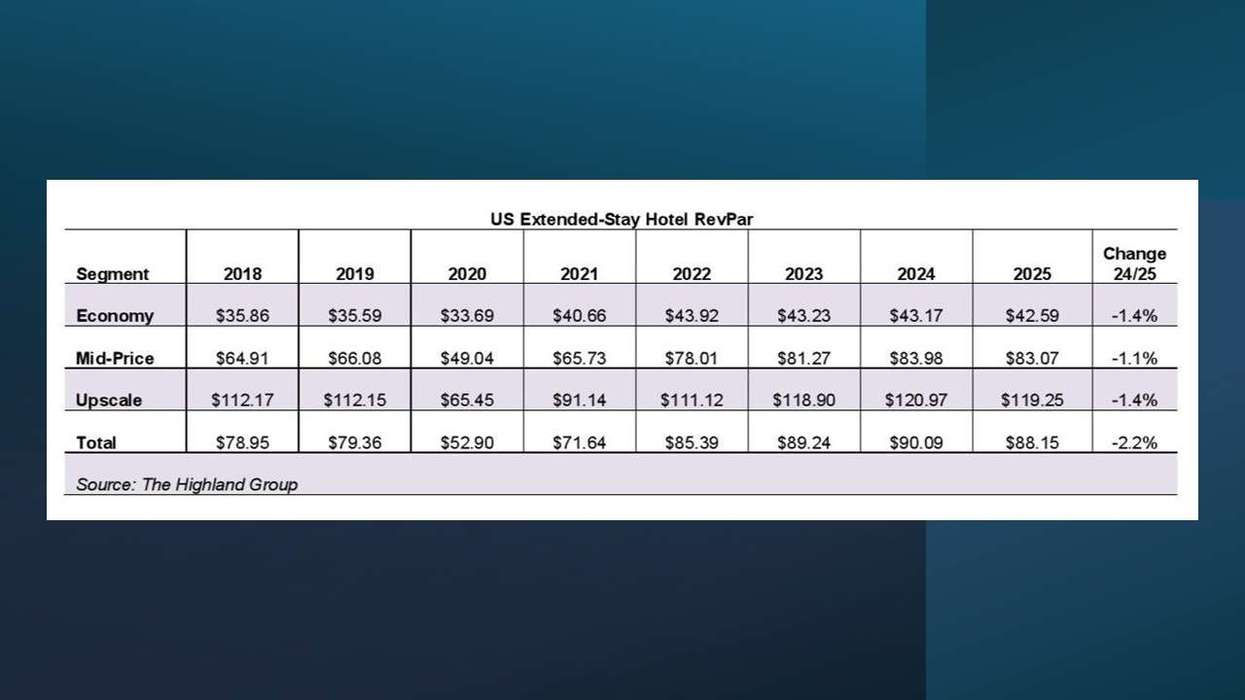AFTER MONTHS OF a COVID-19 pandemic related downturn, U.S. hotels may finally be in a position to begin the long trek back to recovery, according to CBRE Hotels Research and Kalibri Labs. That recovery will begin in the third quarter will finish three years later.
During the second quarter occupancy dropped 60 percent from the previous year to 28.3 percent. The sudden decrease led 15 percent of U.S. hotels to close for at least some of the quarter, according tothe second-quarter edition of CBRE’s Hotel Horizons.
“Fortunately for U.S. hoteliers, indicators of market recovery began to emerge during the quarter. After bottoming out in April, lodging demand increased 83 percent in May and June,” said Jamie Lane, CBRE’s senior director. “This mini surge in demand was fueled by leisure travelers looking to escape the bonds of home quarantine for safe and healthy rural and resort destinations.”
CBRE predicts the industry will see continued improvement for the rest of 2020 and the next two or three years until performance returns to 2019 levels in 2022 for upper-midscale and 2024 for luxury and upper-upscale. Occupancy should average 39.8 percent, along with an ADR of $104.10 for 2020 leading to annual RevPAR of $41.46, 52.5 percent less than the $87.22 for 2019.
“U.S. lodging demand is forecast to increase by a compound annual growth rate of 14.1 percent over the next four years,” Lane said.
There are various economic, social and operational factors that will shape the recovery, said Bram Gallagher, CBRE’s senior economist.
“In the past quarter we observed geographically staggered rates of infection throughout the U.S.,” Gallagher said. “Therefore, CBRE forecasts an economic cycle shallower than initially anticipated, followed by a longer recovery. In turn, this has extended our forecast of recovery in lodging demand to 2023 from 2022.”
That is close to STR’s previously released forecast that set 2023 as the year for hotel performance to return to 2019’s level.
CBRE recently entered a partnership with Kalibri Labs to provide performance data for the Hotel Horizons reports. Kalibri Labs collects daily transactional booking data from approximately 34,500 hotels with more than 3 million guest rooms across the U.S.
“Even before COVID, the operating environment had become more complex and more expensive as the booking process has moved online and the data is now available to illustrate the segments and channels that comprise demand along with their costs,” Cindy Estis Green, Kalibri Labs CEO. “Key market drivers can be clearly defined and as a result, CBRE’s important projections for the future can be considerably more refined and accurate.”





